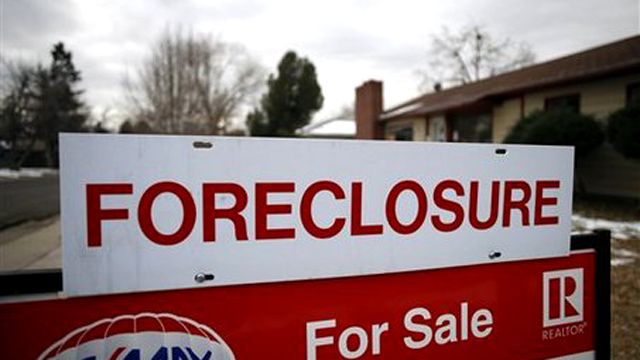In 2010, Cheryl Hoffman faced the nightmare of foreclosure.
“It was awful,” she said as she walked past her old four-bedroom Santa Fe ranch in Golden, Colorado. “It was very painful.”
But aside from the emotional strain of being kicked out of her home, Hoffman experienced another problem: The lender that was trying to evict her was not the lender she had signed her mortgage agreement with.
“My mortgage had been bought and sold so many times,” she explained. “It was unclear who the lender was and it’s still unclear today.”
In fact her home, which is about 30 miles from downtown Denver, sat empty for months -- and not because no one wanted to buy it. She says her multiple lenders were fighting over ownership and thus couldn’t transfer title.
'I’m not even sure my foreclosure was legal. . .'
- Cheryl Hoffman
“I’m not even sure my foreclosure was legal, but I didn’t have the time or money to fight it,” she said.
It’s a situation she says is happening all over Colorado and in much of the country, and she’s now supporting a state ballot initiative that she says would give needed clarity to the foreclosure process.
The Colorado “Right to Foreclose” Amendment would require all lenders in the state to prove they own the property before they can foreclose.
“A very bad idea,” according to Don Childears, who says the measure will hurt responsible homeowners.
“They are going to end up with increased costs as a result of this,” says Childears, who heads the Colorado Bankers Association. “The proposal basically adds a lot of needless red tape that drives up the cost for any lender.”
He says lenders will then pass that cost on to all homebuyers, not just the ones who don’t pay their bills.
“It’s going to hurt real estate. It’s going to hurt the economy, and, quite frankly, that’s not what this state needs right now,” said Childears.
Currently, Colorado lets lenders foreclose with a letter from an attorney, who personally verifies clean title. The ballot measure would require much more extensive proof of ownership.
“The process works exactly the way it should right now,” added Childears, who predicts homes will sit on the market much longer while title searches are conducted and certified.
“That means they are deteriorating more and they are bringing down the property values of neighboring properties. No one wants that.”
Childears points out that 90 percent of mortgages in Colorado have been sold on the secondary market. He says a lot of lenders will no longer buy those mortgages if they have to go through the “bureaucracy that is required by this measure.”
“They won’t sell and it will be a disaster,” he said.
Hoffman disagrees.
“I think that people's property rights are fundamental to investing in a home,” said Hoffman, who claims the extra cost to lenders is “miniscule.”
“You have a right to know if the person who wants you out of your home, actually owns your home. It’s that simple”

